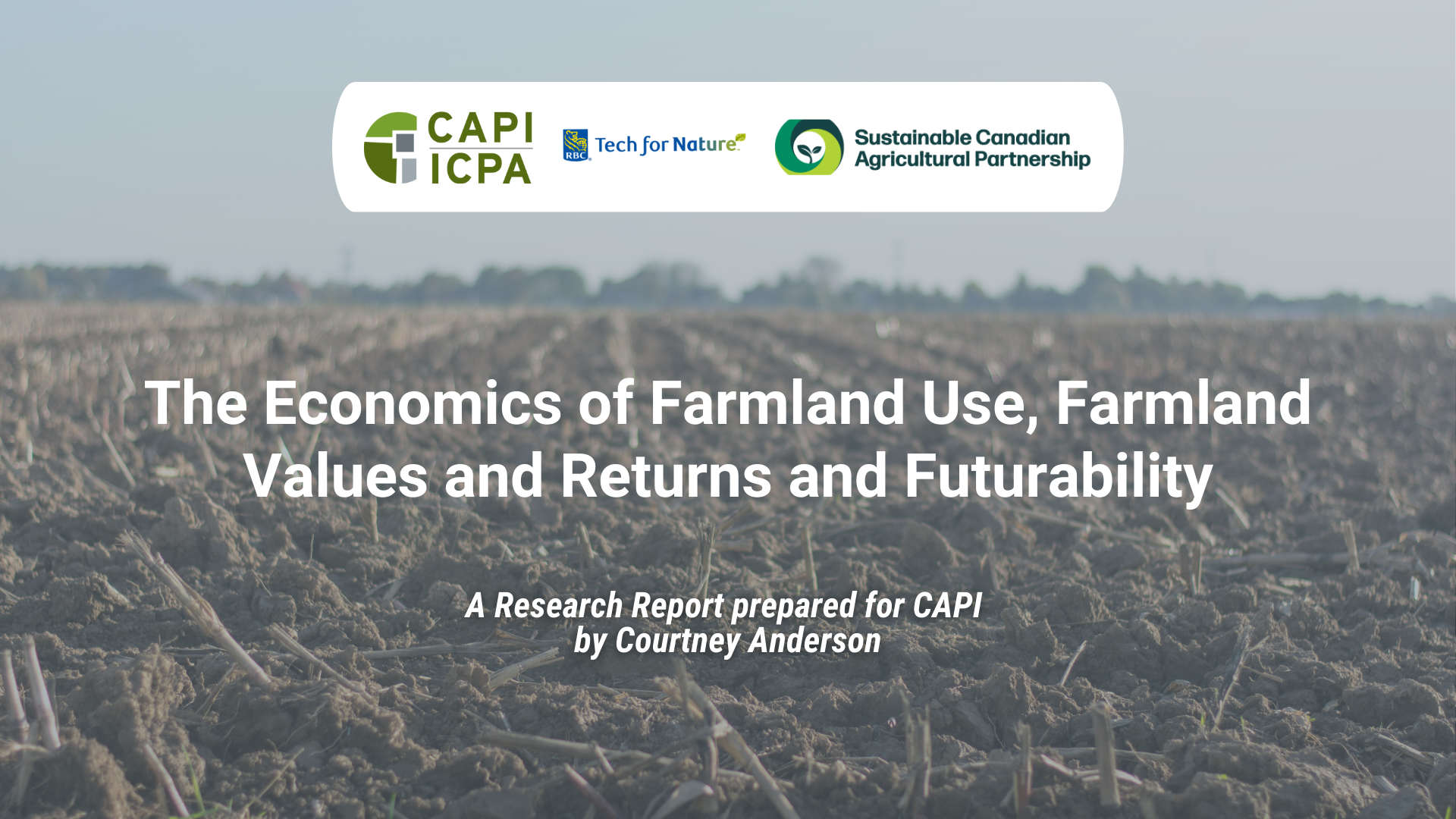The Economics of Farmland Use, Farmland Values and Returns and Futurability

Note from CAPI
This report explores the economics of farmland use, value, and returns across Canada, using Census of Agriculture data to fill key knowledge gaps. While farmland has appreciated significantly over the past 30 years, rising land values alone don’t deliver sufficient returns for most investors—especially in high-density regions where development pressures distort the economics of farming. Farmland rentals and on-farm operations offer better returns but come with added risk. The data reveals intense competition for rental land and regional disparities that impact farm viability. For policymakers, the message is clear: safeguarding Canada’s agricultural land base—and the ability of future generations to farm it—requires nuanced, regionally grounded strategies. Continued investment in detailed, farm-level data is essential to ensure policies support productive, economically viable farmland use and long-term food security.
This report is part of CAPI’s Policies for Land Use, Agriculture & Nature (PLAN) program focused on advancing solutions that enable us to feed the world sustainably, protect farmland, preserve nature and biodiversity, and promote food security. The initiative is supported in part by the RBC Foundation through RBC Tech for Nature.
Key Takeaways
- Farmland is Finite—and Under Pressure. Despite strong demand, actively used farmland in Canada is in long-term decline, particularly near urban areas. Understanding its economic drivers is essential for protecting the land base needed for future food security.
- Data from the Census of Agriculture is a Hidden Asset. The CEAG offers unparalleled insight into farmland values, rents, and returns. It’s underused but uniquely suited for detailed, regionally granular analysis to support evidence-based land use policy.
- Farmland Appreciation Alone Isn’t Enough. In most regions, rising land values have not matched the returns required by typical farmland investors—especially in provinces where land prices reflect non-farm pressures like development.
- Rentals and Farm Operations Offer Returns—With Risk. Farmland rental and active farming can provide stronger returns than appreciation alone, but they carry significant uncertainty and depend heavily on regional conditions and policies.
- Policy Must Address Regional and Generational Realities. To sustain viable farm operations, policy should account for competition for land, urban encroachment, and the financial challenges future generations face in accessing land.
